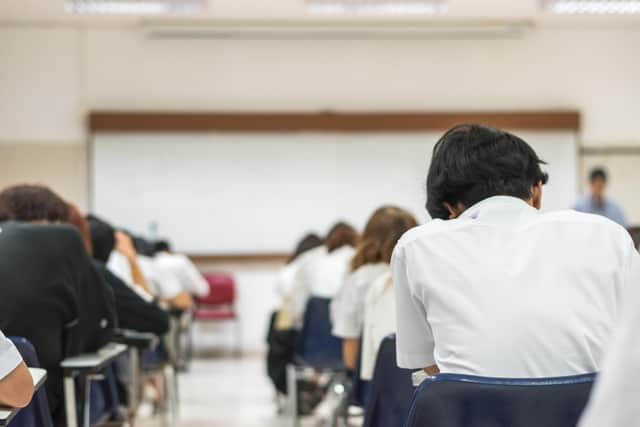Schools Scotland: Scottish Government warned figures showing 'record' number of pupil support staff may not be 'fit for purpose'
The Scottish Government is being challenged over claims there are record numbers of learning support assistants in schools.
Education secretary Jenny Gilruth has made the assertion in recent weeks amid growing concern over services for pupils with additional support needs (ASN). But the Unison trade union, which represents many school support staff, said the Government’s figures may not be “fit for purpose”.
Advertisement
Hide AdAdvertisement
Hide AdThe union told the education committee at Holyrood that MSPs should “interrogate” the statement made by Ms Gilruth, in light of soaring numbers of pupils with ASN. "We need an accurate picture and it is not clear whether the figures she quotes are fit for purpose,” the union said.


Similar concerns were raised with the committee in evidence from the Children and Young People's Commissioner Scotland.
The commissioner, Nicola Killean, said: “Anecdotal information suggests that there has been a reduction in the number of classroom support assistants and specialist teachers to support inclusion. However, changes to the way information is collected and recorded makes it difficult to establish the facts in relation to this.”
Official figures show there were 16,606 pupil support assistants (PSAs) in Scotland in 2022, and 184 behaviour support staff. This is an increase on 2018, when there were 13,803 PSAs and 122 behaviour support staff.
However, just more than a third of pupils in Scotland now have an ASN, with the number having almost doubled in a decade.
In areas such as Edinburgh, 43 per cent of primary pupils and 50 per cent of secondary pupils have an ASN.
ASN can cover a range of needs, such as pupils who have English as an additional language, those with learning difficulties, and others with social and emotional behavioural needs.
Rising numbers across Scotland have been partly put down to better identification and recording, as well as worsening poverty and poor mental health, including in the wake of the cost-of-living crisis and the Covid-19 pandemic, although experts are still trying to fully understand the trend.
Advertisement
Hide AdAdvertisement
Hide AdLast month, Glasgow City’s Unison branch education convener Sylvia Haughney told MSPs last month that services were at “crisis point” following decades of cuts, with ASN pupils often being taught in corridors and cupboards.
In follow-up evidence, she has now called on the education committee to urge the Government to carry out research into the situation, including staffing levels and the suitability of school buildings.
Ms Haughney wrote: “We believe the general public do not realise the scale of the increase and the overall impact – on learning for all, and on the pupils’ and the staff and the other pupils’ experiences.”
A Scottish Government spokesperson said: “While it is for local councils to determine the most appropriate educational provision, the Scottish Government is committed to improving the experiences and outcomes for young people with additional support needs.
“Spending on additional support for learning reached a record high of £830 million in the most recently published figures. In 2022, 307 full-time equivalent (FTE) additional pupil support staff were recruited, which builds on the increase of 1,306 the previous year. This brings the total number of pupil support staff in Scotland in 2022 to 16,606, which is also a record high.”
Comments
Want to join the conversation? Please or to comment on this article.
